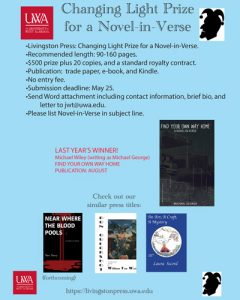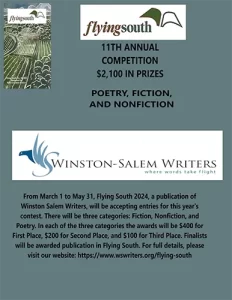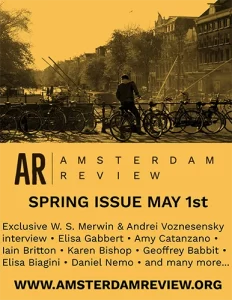The Iowa Review – Spring 2007
Volume 37 Number 1
Spring 2007
Annual
Stefani Nellen
My personal favorite among this issue’s stories, Mary Slowik’s “Teeth,” takes the storyteller’s doctrine (dig where it hurts) to a brilliantly literal level. In her atmospheric, sinister story, the narrator, a dentist’s daughter, watches her father fix an exposed nerve: “The nerve waved blindly on the point of the probe. It reminded me of a single larva separated from its teeming kin, the heaving masses in our compost pile, the rows of soft grubs lined up in our beehives at home. And yet, I knew this tiny thread contained the most quivering pain.” All the pain hiding inside all the teeth (false teeth, hidden teeth…the theme connecting the story’s sections) erupts in a single, intense moment. Wow.
My personal favorite among this issue’s stories, Mary Slowik’s “Teeth,” takes the storyteller’s doctrine (dig where it hurts) to a brilliantly literal level. In her atmospheric, sinister story, the narrator, a dentist’s daughter, watches her father fix an exposed nerve: “The nerve waved blindly on the point of the probe. It reminded me of a single larva separated from its teeming kin, the heaving masses in our compost pile, the rows of soft grubs lined up in our beehives at home. And yet, I knew this tiny thread contained the most quivering pain.” All the pain hiding inside all the teeth (false teeth, hidden teeth…the theme connecting the story’s sections) erupts in a single, intense moment. Wow.
This issue’s diversity of style amazed me; it was impossible to predict one story from the next. Stephen Spicehandler’s “To Cavalry” describes the loving battles between the narrator and his dying wife – a surprisingly action-packed story considering the potentially static and depressing subject matter. The love depicted in this piece is still alive and kicking, and all the more heartbreaking for it. How interesting to compare Spicehandler’s piece with James McKean’s much shorter story, “Bound,” which also describes a marriage. McKean’s story is as calm and tense as “Cavalry” is twitching and struggling. Husband and wife go to visit their future plot on the cemetery; the incident reveals a seemingly enormous chasm between their personalities, which becomes – as the last sentence reveals – irrelevant in the face of their love.
And there’s more: Phong Nguyen offers the hilarious “Pages from the Textbook of Alternate History: Columbus Discovers America,” and Rusty Dolleman’s “September, 1981” takes a more personal view on an historic day: the boxing match between Sugar Ray Leonard and Tommy Hearns as viewed by a group of factory workers from Michigan who have bet all their money on Hearns. Another interesting pair of stories on a similar theme (history) – the surreal idea piece and the suspenseful, old-fashioned narrative. A strong mix here and throughout.
[https://iowareview.org]




